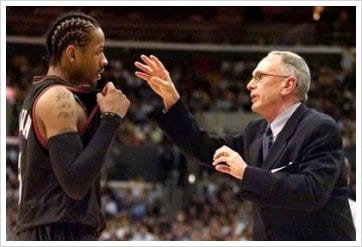by Joey Harvey – April 2016
HOW THE SPURS’ VALUES SHAPED MY CAREER LIFE
Spurs Sports & Entertainment operates its business on a daily basis under the umbrella of three primary values: integrity, success, and caring. The aim is to make every decision while upholding each value. These three values have led to growth not only in my career, but my personal life.
Start with integrity
It begins with integrity. Spurs head coach Gregg Popovich has said multiple times that he looks to bring in players and coaches that are “over themselves.” That is, people who are able to put aside their own egos and realize the betterment of the team is the most important.
On the business side, the people that stick around and build good careers do so while doing things the right way. Treating coworkers with respect, avoiding office drama, rumors, and politics, and focusing on being the best person at your job are the simplest ways to uphold your integrity and build a name for yourself.
Add attitude & effort to get results
The order or formula of what leads to success was taught to me as: Attitude + Effort = Results. When you combine a positive attitude with maximum effort, the results will come. Effort isn’t all about repetition, but it’s about repeating (or practicing) the right way. It’s not about making 100 phone calls a day, but rather perfecting your technique on those calls and using each one as an opportunity to make yourself better.
The right attitude and effort leads to success. You can be the nicest person in the world and have the highest level of integrity, but if you don’t effectively do the job you’re hired to do, there is no place for you with the company. We are a business, after all.
Ticket sales is much like a sport. Regardless of success rate or revenue you’ve brought in, the landscape constantly moves forward. You have to adjust. If you don’t adapt and think ahead about what’s next, you’ll fall behind. Always be open to sharpening your skills and learning more. Take something from each trainer or manager you come across and figure out how it could apply to your own approach. Never stop learning and striving to become better. The more open you are to being coached, the more success you will have.
Give a care
Most importantly, to me, is caring. When I approached a few of my managers to discuss some personal issues that might cause me to miss some time at work, the response was “We love you man, and we are here to support you.” Do you know how powerful that is to hear? You don’t find that level of care at just any company.
We don’t try to force caring; it’s just who you are. I sat in on a session led by Spurs General Manager RC Buford a few years ago. He said it simply: “A company’s culture is developed by the kind of people you bring in.” When the right people are brought in, the culture essentially develops itself.
My closest friends now are current coworkers or have worked for the Spurs in the past. I’m in a wedding in June between two former Spurs coworkers. The groom’s bachelor party? Mostly members of our 2010 inside sales class. Many of them live in different states now across the country. When you have a culture that treats employees like family, it allows you to invest in each other as people, develop lasting relationships, and create a network of support that only translates into more cohesiveness in the workplace.
I can’t help but believe that the values of integrity, success and caring have led to so much success for the Spurs on the basketball court. I can say with certainty it’s what’s led to my personal success in the business office.


